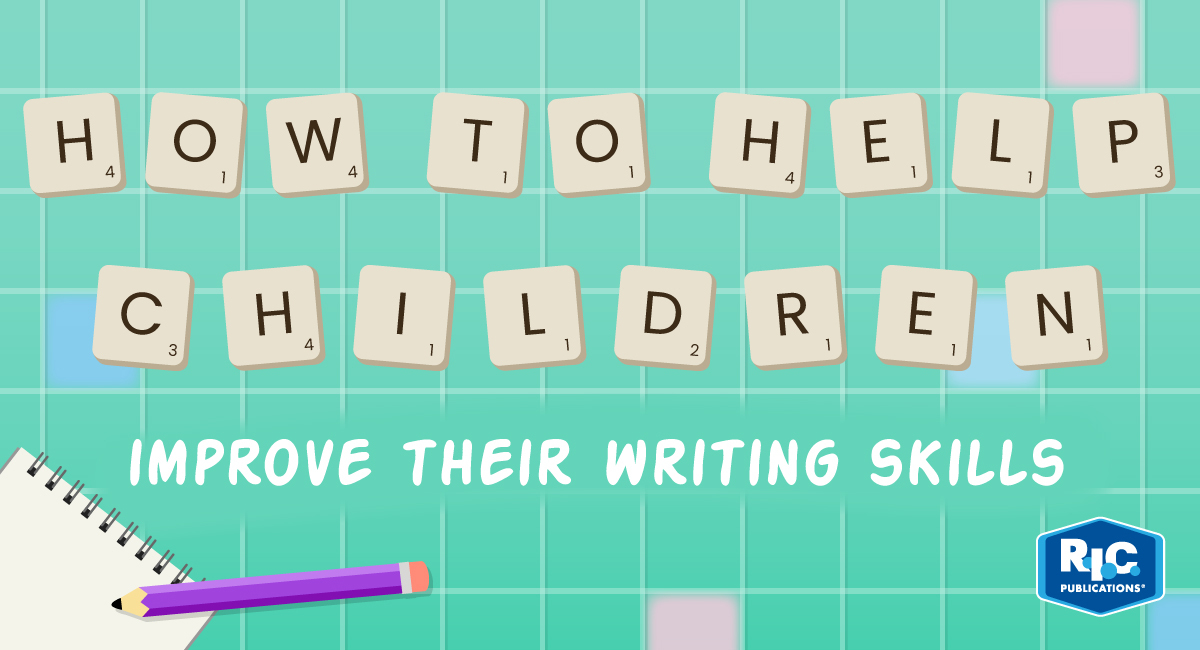- Monday 20 September 2021
- 0 Comments
Writing is a fantastic way for children to express themselves, tell stories and share their ideas. However, it can be difficult for many children to gain confidence in their writing. If you’re stuck on how to help your children improve their writing skills, don’t despair—we’ve got some fun and useful ideas to help you, help your child!
1. Read, read more and (you guessed it) read even more
Encourage your child to read as much as they can! By reading regularly, children are able to pick up new words to add to their vocabulary, and see ways in which they can structure their own sentences. What better way to improve your writing than to learn from writers themselves?
Not all children are avid readers, and that is okay! Expose your children to a wide variety of texts, not only so they can become familiar with a range of text types, but also to see what interests them the most. From fantasy fiction and graphic novels, to notable biographies and pop culture news articles, encourage all forms of reading.

2. Make your writing topics FUN
Whilst improving our writing is educational, it can also be fun! We all know it’s easier to keep a child’s attention when they’re interested in what they are learning (same goes for adults!). Keep them engaged by tailoring some of their writing topics to things they enjoy speaking and reading about. Do they love space? Ask them to write an intergalactic narrative, aliens, spaceships and all. Are they an avid sports fan? Ask them to write a persuasive text arguing why they think everyone should play a sport. You get the idea!

3. Writing isn’t just for school
Writing doesn’t just have to be within the confines of the classroom. Encourage children at home to continue their writing in other forms! This could be journaling about their day before bed, writing letters to family members (grandparents particularly would love this), or even creating a blog on a topic they are interested in. This is a great opportunity for them to get creative!

4. Play word games
This is one of our favourites—games! You’d be hard pressed to find a child who doesn’t enjoy playing games. Word games can easily be disguised as simply a fun activity, whilst still being educational, and are a fantastic way to help improve your child’s vocabulary. Boggle and Scrabble are classics (there’s a reason they’re so popular) and there are also many word games apps that are available for free as well. Get the whole family together and play some word games this weekend!
5. Practice makes perfect
Now we know this one seems like a no brainer, but there’s a reason for the saying! Practice truly does help children improve their skills across all areas, and writing is no different. Luckily we have the perfect resource to help your child practice their English and writing skills! Your students will love practicing English with the fun and colourfully illustrated daily exercises in English skills practice.
The workbooks cover areas of the Australian Curriculum and are designed to effectively consolidate students’ learning and reinforce concepts taught. There are 150 days of questions in each workbook, covering:
- Spelling
- Phonic analysis
- Word knowledge—as meaning, derivation, suffixes, prefixes
- Punctuation
- Grammar



What have teachers said about English skills practice?
‘The books challenge children and provide repetition to support children in their learning. They are a steal for the amount of work provided in them. They have improved children’s spelling, punctuation and grammar through daily repetition in our class. A must for every booklist!’ — Elaine Joy, Teacher
This book really helps to consolidate and develop my students’ ability and confidence to use English. The children in my class really enjoyed completing the 10 questions and enjoyed discussing the answers within their small groups. — Ashley Azzopardi, Teacher
We love these books for revising all grammar topics throughout the year. They use technical vocabulary and exam-style questions to quickly touch on lots of different aspects of grammar. — Claire Orr, Teacher
This is my first year using English skills practice and it is an amazing book. It draws attention to grammar as the building blocks of sentences and language, and focuses on what children need to know in order to understand the nuances of texts rather than prescriptive, repetitive exercises on one topic at a time. — Alan Ó’ Ceallaigh, Teacher
Interested in finding out more?
Check out more here or download a free sample below.
